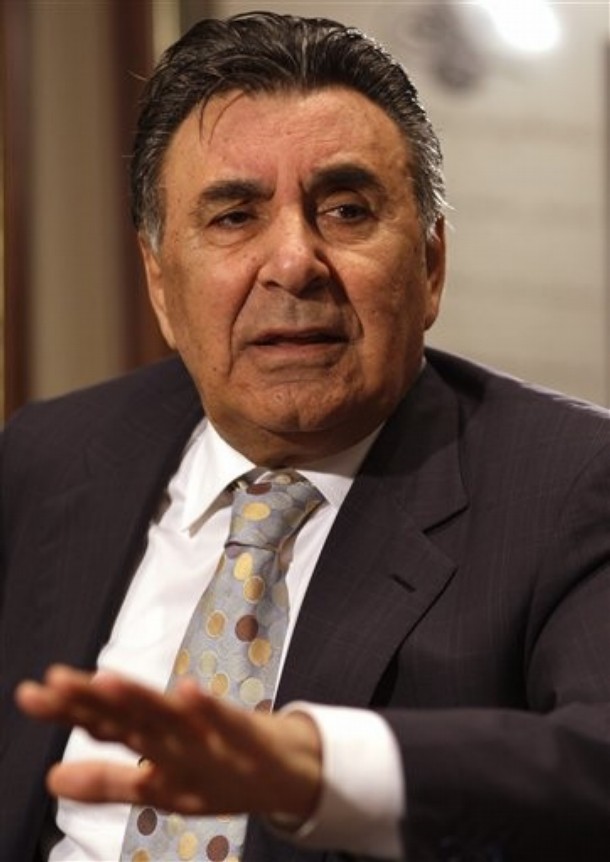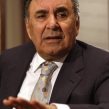
AKP Government’s Conflict with Media Group Escalates
Publication: Eurasia Daily Monitor Volume: 6 Issue: 166
By:

Turkish tax authorities have imposed a record tax fine, totaling 3.755 billion Turkish Liras ($2.5 billion), against the Dogan Media Group, (DMG), Turkey’s largest media group and the publisher of influential newspapers including Hurriyet, Milliyet, Vatan, Radikal, Referans, Hurriyet Daily News, and owner of widely watched TV stations including Channel D, CNNTurk, Star TV, and many other media outlets. The fines are for taxes that the DMG units allegedly should have paid, stemming from share sales between group companies, according to officials. The company claims that it did not break any laws about share transactions between group companies, claiming that the assessment by tax officials was "subjective" (Hurriyet Daily News, September 8).
DMG has long been known for its opposition to the ruling Justice and Development Party (AKP) and particularly against Prime Minister Recep Tayyip Erdogan since he became the Mayor of Istanbul in the mid 1990’s. During the February 28 soft coup period -1997-2002, when DMG had privileged relations with both the military and the civilian governments, the group’s newspapers harshly criticized Erdogan. For instance, due to reading a poem from a well known Turkish poet when Erdogan was imprisoned, Dogan newspapers supported the verdict and ran headlines such as: "Erdogan cannot even be the head of a village," and used victorious tones in reporting claims that the verdict had ended Erdogan’s political career (Radikal, September 24, 1998). At that time, DMG newspapers used every opportunity to undermine Erdogan’s credibility. They often ran headlines based on the results of politically oriented investigations against Erdogan (Milliyet, June 11, 2002; Sabah, October 24, 2001). In response, Islamic oriented newspapers supported Erdogan against DMG’s negative campaigns (Yeni Safak, August 13, 2001). Most recently, Erdogan and DMG media outlets were in conflict during the last election campaign eight months ago. Instead of targeting the political opposition Erdogan lashed out at the DMG Chairman Aydin Dogan during an election rally. In addition to its political opposition to the AKP government DMG is also known for its aggressive strategies to destroy its media rivals. In the past, the DMG has not hesitated to use its influential position to destroy its rivals in the media.
The record tax fine against the DMG has sparked a debate as to whether Erdogan is taking revenge against the media giant. DMG issued a statement saying that the tax reports "argued on conditions that are not covered by law and relied heavily on personal assessments. [Company] practices criticized in these tax reports are in accordance with legal regulations and the finance ministry’s communiqués and circulars" (Hurriyet Daily News, September 8). In response to DMG’s criticism, rival dailies published documents from details of the tax investigation, which indicates that indeed DMG was guilty of some wrongdoings (Yeni Safak, September 10). Yet, independent media outlets reported that in fact DMG engaged in wrongdoings, but these are very common in Turkish companies. While the tax fines appear legal, some argue that they are unfair since it was applied selectively, ignoring other companies engaged in similar activities, suggesting that the DMG might have been targeted due to its opposition to the government (Taraf, September, 9).
DMG on the other hand, links the tax fine to the issue of the freedom of the press. It argues that the government is targeting the opposition media in order to silence its critics. The opposition Republican People Party (CHP) Chairman Deniz Baykal, called the recent tax fines a way of tyrannizing the DMG (Hurriyet, September 9). The European Commission also released a statement emphasizing concern over the freedom of the press in Turkey (Hurriyet, September 11).
Those who argue that the AKP government might be attempting to silence the opposition, offer the example that the main opposition columnist Bekir Coskun was forced to quit the Hurriyet daily. They claim that the AKP government gave a list of opposition journalists to fire from the Dogan Meida outlets (www.nethaber.com, September 10). This argument, however, seems implausible since Bekir Coskun was hired by Ciner Media Group, which maintains closer relations with the AKP government.
Other media outlets, whether pro-government or not, have tried to avoid becoming involved in the conflict between Dogan Media and the AKP government. Fatih Altayli, who was once a close associate of Aydin Dogan, and now works for Ciner Media Group questioned the DGM statements: "as they claim, if the DMG has not gained any profits from these internal-sales operations [some group companies were bought by other DMG companies], why would you need to conduct such operations?" (HaberTurk, September 11).
Examining these developments from outside, one could argue that the tax fine resulted from various factors. On the one hand, it could be linked to Erdogan’s anger against the group. However, it is also true that DMG has a previous record of incurring tax fines. In addition, its assertive policies to eliminate its rival groups, isolated DMG in difficult economic circumstances. More importantly, the "freedom of the press" argument runs the risk of being overused by the group, which is causing some independent observers in Turkey to question their claims.




